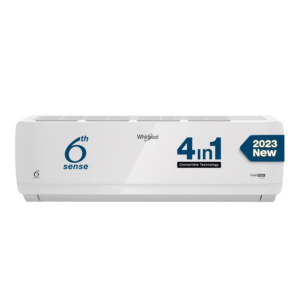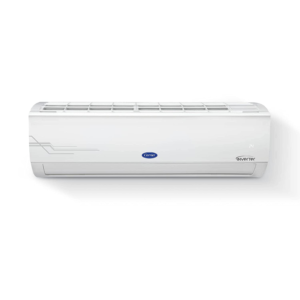An air conditioner is essential for keeping your home cool and comfortable, especially during the sweltering summer months. But when your AC isn’t cooling properly, it can be frustrating and uncomfortable. There are several reasons why your air conditioner might not be working as efficiently as it should. This troubleshooting guide will help you identify common problems and possible solutions to restore your AC’s cooling power.
Is your air conditioner (AC) failing to provide the cool and comfortable environment you desire? It can be frustrating when your AC doesn’t cool properly, especially during hot summer months. Understanding the potential causes of this issue is crucial in troubleshooting and resolving the problem. In this article, we will explore the top reasons why your AC may not be cooling effectively and provide a comprehensive troubleshooting guide to help you rectify the situation.
Top Reasons Your AC is Not Cooling Properly: Troubleshooting Guide
Table of Contents

1. Dirty or Clogged Air Filters
- Problem: One of the most common reasons for an air conditioner not cooling effectively is a dirty or clogged air filter. Over time, dust, dirt, and debris accumulate on the filter, restricting airflow and reducing the system’s efficiency.
- Solution: Check your air filter regularly and clean or replace it every 1-2 months, especially during peak usage times. A clean filter will improve airflow and help your AC cool the room better.
2. Refrigerant Leak
- Problem: Refrigerant is a crucial component of your air conditioning system. If there’s a leak in the system, the refrigerant levels will drop, causing the AC to struggle to cool properly. Low refrigerant levels can also cause the coils to freeze, further reducing the unit’s efficiency.
- Solution: If you suspect a refrigerant leak, call a professional technician to inspect and repair the leak. Only a certified technician can safely handle refrigerant.
3. Thermostat Issues
- Problem: Sometimes, the problem is as simple as a malfunctioning thermostat. If the thermostat isn’t reading the temperature correctly or is set improperly, the AC may not be cooling to the desired level.
- Solution: Ensure the thermostat is set to the right temperature and is in “cool” mode. You can also try replacing the batteries if it’s a battery-powered unit. If the thermostat is old or faulty, consider upgrading to a newer, programmable model for better temperature control.
Also Read BEST 2 Ton 5 Star Split AC in India
4. Blocked Condenser Unit
- Problem: The outdoor condenser unit is responsible for releasing heat from inside your home to the outside. If the condenser unit is blocked by debris such as leaves, dirt, or other obstructions, it will have a harder time dissipating heat, which reduces cooling efficiency.
- Solution: Check the outdoor unit for any obstructions and clean it regularly. Make sure there is at least 2-3 feet of clearance around the condenser for proper airflow.
5. Frozen Evaporator Coils
- Problem: When evaporator coils freeze, they lose their ability to absorb heat from the air, resulting in poor cooling. Frozen coils are often a result of restricted airflow, a dirty air filter, or low refrigerant levels.
- Solution: Turn off the AC and allow the coils to defrost. Ensure the air filter is clean, and if the coils continue to freeze, it’s best to have a professional technician check the system for any underlying issues like refrigerant leaks or airflow problems.
6. Faulty Compressor
- Problem: The compressor is the heart of your AC system, pumping refrigerant between the evaporator and condenser. If the compressor is malfunctioning, the AC won’t be able to cool properly. A faulty compressor can be due to electrical issues, refrigerant problems, or age-related wear and tear.
- Solution: If the compressor is the issue, you’ll need to call a professional technician. Compressor repairs can be complex, and in some cases, it may be more cost-effective to replace the entire unit, especially if it’s an older system.
7. Incorrect AC Size
- Problem: An air conditioner that is too small for the room will struggle to cool it efficiently, while an oversized unit will cool too quickly without properly dehumidifying the air. Both situations can lead to discomfort and inefficient cooling.
- Solution: Ensure you have the right-sized AC for your room. Consult with an HVAC professional to determine the correct size based on the room’s square footage and cooling needs.
8. Leaky Ductwork
- Problem: In a central AC system, leaky ducts can cause cool air to escape before it reaches the intended rooms, leading to uneven cooling and reduced efficiency.
- Solution: Have your ductwork inspected for any leaks or damage. Sealing the ducts properly will help maintain consistent cooling throughout your home.
9. Old or Worn-Out AC Unit
- Problem: If your AC is more than 10-15 years old, it may simply be nearing the end of its lifespan. Older units are less energy-efficient and can experience frequent breakdowns, leading to inadequate cooling.
- Solution: Consider replacing an aging air conditioner with a newer, more energy-efficient model. Modern AC units come with improved technology, including inverter compressors, which provide better cooling and lower energy consumption.
10. Insufficient Insulation
- Problem: Poor insulation in your home can cause cool air to escape, making it harder for the AC to maintain the desired temperature. This results in the AC running longer, but not cooling efficiently.
- Solution: Improve the insulation in your home by sealing any gaps or leaks around windows and doors. Adding insulation in your attic or walls can also prevent cool air from escaping.
Also Read How to Fix Water Leakage from Split AC [Guide]
Conclusion – Reasons Your AC is Not Cooling Properly
If your air conditioner isn’t cooling properly, it could be due to a variety of issues, ranging from simple thermostat settings to more complex problems like refrigerant leaks or compressor failure. Regular maintenance, including cleaning filters, checking refrigerant levels, and inspecting the condenser unit, can help prevent many of these issues. However, when in doubt, it’s always best to consult with a professional HVAC technician to ensure your AC unit is functioning efficiently and effectively.
When your AC is not cooling properly, it can significantly impact your comfort and well-being. By understanding the potential causes and following the troubleshooting steps outlined in this guide, you can identify and resolve common issues affecting your AC’s cooling performance.
Regular maintenance, including cleaning or replacing air filters, inspecting and cleaning condenser coils, and ensuring proper insulation, plays a crucial role in optimizing cooling efficiency. Remember, for complex issues like refrigerant leaks or faulty compressors, it is always recommended to consult a qualified HVAC technician to ensure proper diagnosis and repair.
Maintaining a well-functioning AC system not only improves indoor comfort but also enhances energy efficiency, ultimately saving you money on utility bills. Stay cool and comfortable by addressing AC cooling issues promptly and effectively.


